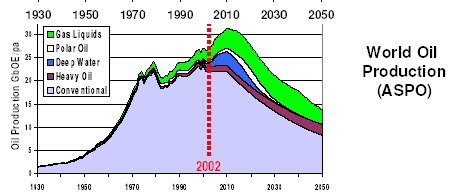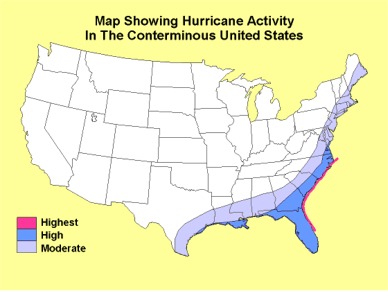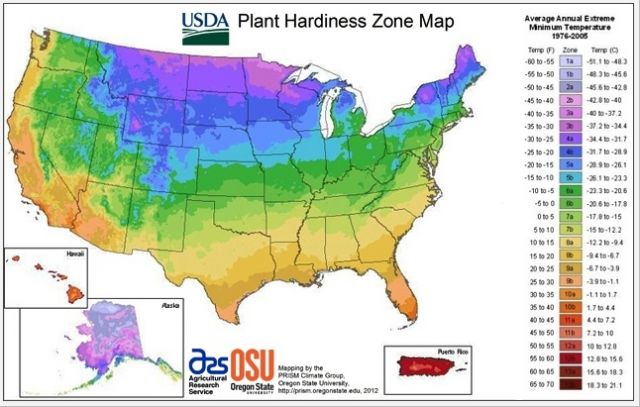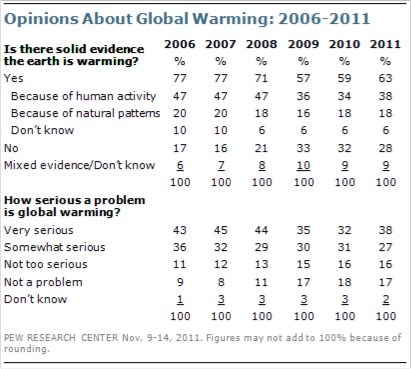 Urgency
Urgency 
What have we done & can we do something now to repair the damages?
Solution? | role of policy | role of religion | role of fuels | media | June, 2008 | urgency
"Immediate Risk to National Security Posed by Global Warming,"
"A new Pentagon report declares climate change to be a threat multiplier" Scientific American, October 14, 2014."The Pentagon released a landmark report yesterday declaring climate change an 'immediate risk' to national security and outlining how it intends to protect bases, prepare for humanitarian disasters and plan for global conflicts. The 20-page '2014 Climate Change Adaptation Roadmap' warns that rising sea levels could flood coastal military bases in the United States and around the world, while droughts and extreme weather could leave leave military training areas vulnerable, hinder the execution of amphibious landings or complicate surveillance and reconnaissance capability."
DOD, United States Department of Defense: 2014 Climate Change Adaptation Roadmap, October 13, 2014.
Chris D. Thomas, a conservation biologist who lead the work on species and climate change, said,
"It's not a matter that might happen in the lifetime of our children and our grandchildren. If you look in your garden you can see the effects of climate change already."
"In response to a changing climate, the study finds that species are moving away from the equator at an average rate of more than 15 feet per day, or about a mile per year."
IPCC Fifth Assessment Report, AR5: "Human influence on the climate system is clear." [2013]
The 2012 USDA Plant Hardiness Zone Map is the standard by which gardeners and growers can determine which plants are most likely to thrive at a location. For the first time, the map is available as an interactive GIS-based map from USDA.
Geothermal energy is a reasonable solution to electricity and heating needs revealed by an extensive MIT study finds that: "Although geothermal energy has provided commercial base-load electricity around the world for more than a century, it is often ignored in national projections of evolving U.S. energy supply." The oversight is serious because as the report shows, "This could be a result of the widespread perception that the total geothermal resource is often associated with identified high-grade, hydrothermal systems that are too few and too limited in their distribution in the United States to make a long-term, major impact at a national level." Such an erroneous belief widely held can only undermine serious proposals for reducing our use of carbon rich fuels. The report went on to argue that "This perception has led to undervaluing the long-term potential of geothermal energy by missing an opportunity to develop technologies for sustainable heat mining from large volumes of accessible hot rock anywhere in the United States."
p. 1-2., The Future of Geothermal Energy. © 2006 Massachusetts Institute of Technology.

 Sarkozy once Called for a Carbon Tax, &
Sarkozy once Called for a Carbon Tax, &
Sanctions Against Kyoto Resisters.
Ex-president Nicolas Sarkozy of France had called for a national "carbon tax" on global-warming pollutants and a European levy on imports from countries outside the Kyoto Protocol. That was before the world's emissions exceeded 400 part per million of carbon dioxide in the atmosphere. When the last period of Earth's history had reached that threshold, the sea level was nearly thirty meters higher than now. The pent up thermal capacity of that level of CO2 can have considerable, unanticipated consequences.


British Columbia has enacted a carbon tax. Ministry of Finance for BC explains, "By reducing fuel consumption, increasing fuel efficiency, using cleaner fuels and adopting new technology, businesses and individuals can reduce the amount they pay in carbon tax, or even offset it altogether."
Oil Peaked in 2006: Study.
World oil production has already peaked and will fall by half as soon as 2030, according to a report which also warns that extreme shortages of fossil fuels will lead to wars and social breakdown. A study by the German-based Energy Watch Group says that global oil production peaked in 2006 - much earlier than most experts had expected.

US Insurers Withdraw Extreme Weather Coverage from Northeastern States.
Public officials in Southern states from Florida to Texas have been fighting insurance carriers for years over rising rates and withdrawal of services, but officials in the Northeast have only recently joined the fray.

Companies including Allstate, State Farm and Liberty Mutual have "non renewed" policies not only in hurricane-battered places like Florida and Louisiana, but in New York and other Northern states that have not seen hurricanes in years.

 Tropical Storm Sandy in 2012 put 13 to 16 feet of water in Lower Manhattan.
Tropical Storm Sandy in 2012 put 13 to 16 feet of water in Lower Manhattan.
"Our way of dealing with energy issues probably will have to change fundamentally.
The International Energy Agency, anyway until recently, denies that such a fundamental change of our energy supply is likely to happen in the near or medium term future.
The message by the IEA, namely that business as usual will also be possible in future, sends a false signal to politicians, industry and consumers – not to forget the media."
EXECUTIVE SUMMARY / KEY FINDINGS, CRUDE OIL – THE SUPPLY OUTLOOK.
Do it sooner than later is the message of the IPCC’s findings in December, 2008.
By
J. Siry, Ph.D., Rollins College *
Global climate chaos (global warming or climate change, or abrupt climate change) is a problem with several solutions of paramount importance in that it affects and is affected by all other ecological and social matters. This is due to the ever-present character of the air and the oceans as the heat engine of the planet. And it will require that we must adapt or take measures, as Miami-Dade County is doing, to mitigate because this is an accelerating rate problem that gets worse not better with time, like the unpaid balance of a credit card.
The problem is not a natural one and as such raises the stakes for those who ignore, inadvertently add to the carbon dioxide emissions or denude vast areas of the climate moderating influences of extensive vegetation.
For approximately half the world’s populations that live in the coast zone the adaptive and mitigating measures will include relocation of dense populations. In those areas in Asia amounting to three billion people watered by the glacial melt, or the high Andes and Alpine regions reduction in water for wildlife and agricultural conservation will require changes in water reuse.
Driven by land-use and energy-use policies the steady accumulation of carbon dioxide and methane in the atmosphere will take a century or more for natural –intact—systems to dissipate the heat trapping gases that intensify climate chaos. The unpredictable characteristics of chemical and biological systems at high threshold levels of heat trapping gases not seen on the planet for the last 800,000 years or more raises the precautionary aspect of our actions to an essential level in our future estimates of timber, agricultural fishery and aquifer yields. In this situation of accumulating rates of heat trapping gas and energy consumption any delay in reducing our two percent annual increase in emissions is an irresponsible course of inaction.
298 words.
Additional material
Global warming recent FAQs | Fourth assessment report
Spencer Weart | Gale Christianson | James Hansen | Contemporary | Robert Musil | David Archer | Gavin Schmidt | data
role of policy | role of religion | role of fuels | urgency
This page was created, by J. Siry.

.gif)





